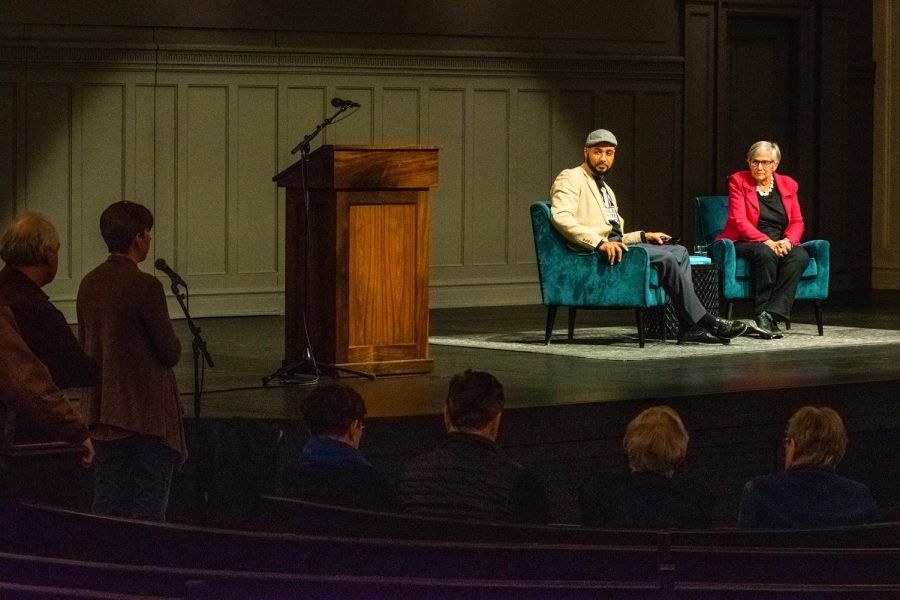Diane Ravitch, the People’s Champion for Public Education
Jesse Hagopian and Diane Ravitch responding to questions from the audience.
On the unexpectedly rainy evening of Diane Ravitch’s speech, educators, fans of her work, reformers and regular Seattleites gathered in Seattle Town Hall’s concert hall. Ravitch was hosted and briefly interviewed by her colleague Jesse Hagopian, a respected teacher at Garfield High school and editor of multiple books related to social justice.
Ravitch’s talk was titled “The Fight to Save America’s Public Schools” and focused mainly on themes from her newest book, “Slaying Goliath: The Passionate Resistance to Privatization and The Fight to Save America’s Public Schools.” Ravitch identified her so-called Goliath as a group of corporations and wealthy people she called “The Disruptors.”
Ravitch described the disruptors as “part of this movement to privatize public education, to attack public schools, to attack the teaching profession, to de-professionalize it, to replace professional teachers with inexperienced idealistic young people and to monetize public education. They see [the education system] as this vast pool of government money in which there should be people making a profit.”
Additionally, Ravitch claimed that nothing done by “The Disruptors,” which includes Bill Gates, Betsy Devos and many other billionaires, has fixed education. She also explained how other programs like “Race to the Top” and “No Child Left Behind” failed and that charter schools are not the solution either. Charter schools, a common alternative to public schools, rarely perform better—and more often, worse—than public schools, yet they keep expanding.
“The legislatures, in states like Ohio or like Florida, are so deeply committed monetarily to the people who fund charters that they never go backwards, even though the charters are failing,” Ravitch said.
Charter schools are funded by the state, but Ravitch points out that funding could be more effectively used and reach more students if it was simply given to a public school instead. She made the point that, with the large amounts of charter schools opening and closing across the country, they are sometimes the source of scandal.
Kurt Lauer, principal of Federal Way Public Academy and attendee of Ravitch’s talk, said that while he understands the critiques of charter schools, he does not think that they are a bad alternative.
“The current public-school system doesn’t allow a lot of innovation to try to meet the needs of this changing society that we have,” Lauer said.
Ravitch’s talk not only consisted of her critiques of the current education system and the failed attempts that have been made to fix it but also the stories of small groups defeating money-fueled institutions for the betterment of childhood education.
She told the story of the teachers at Garfield High School who came together and unanimously decided not to administer a standardized test that they felt was destructive to the students.
She even quoted the host, Jesse Hagopian, who participated in this teacher protest, when she said, “you know, if you switch over to our side, when CNN comes in tomorrow, we can make you famous.” She said to a superintendent that was trying to convince the Garfield teachers to give their students the test.
She also shared a story of two concerned parents taking down a 100-million-dollar program called Emblem that was designed to collect data points from students and store them in an Amazon-run cloud space. Another story she shared was about a small group of 12 people who were able to get $15 million from the state of Chicago to fund Walter H. Dyett High School for the Arts, an open-enrollment high school, that was set to close. They were able to persuade the state to give them the funding through a 34-day hunger strike.
Hagopian said that if there was one lesson that could be learned from this talk it should be that, “even though billionaires have way more money than us, when we come together, in collective struggle, we actually have more power than them.”


